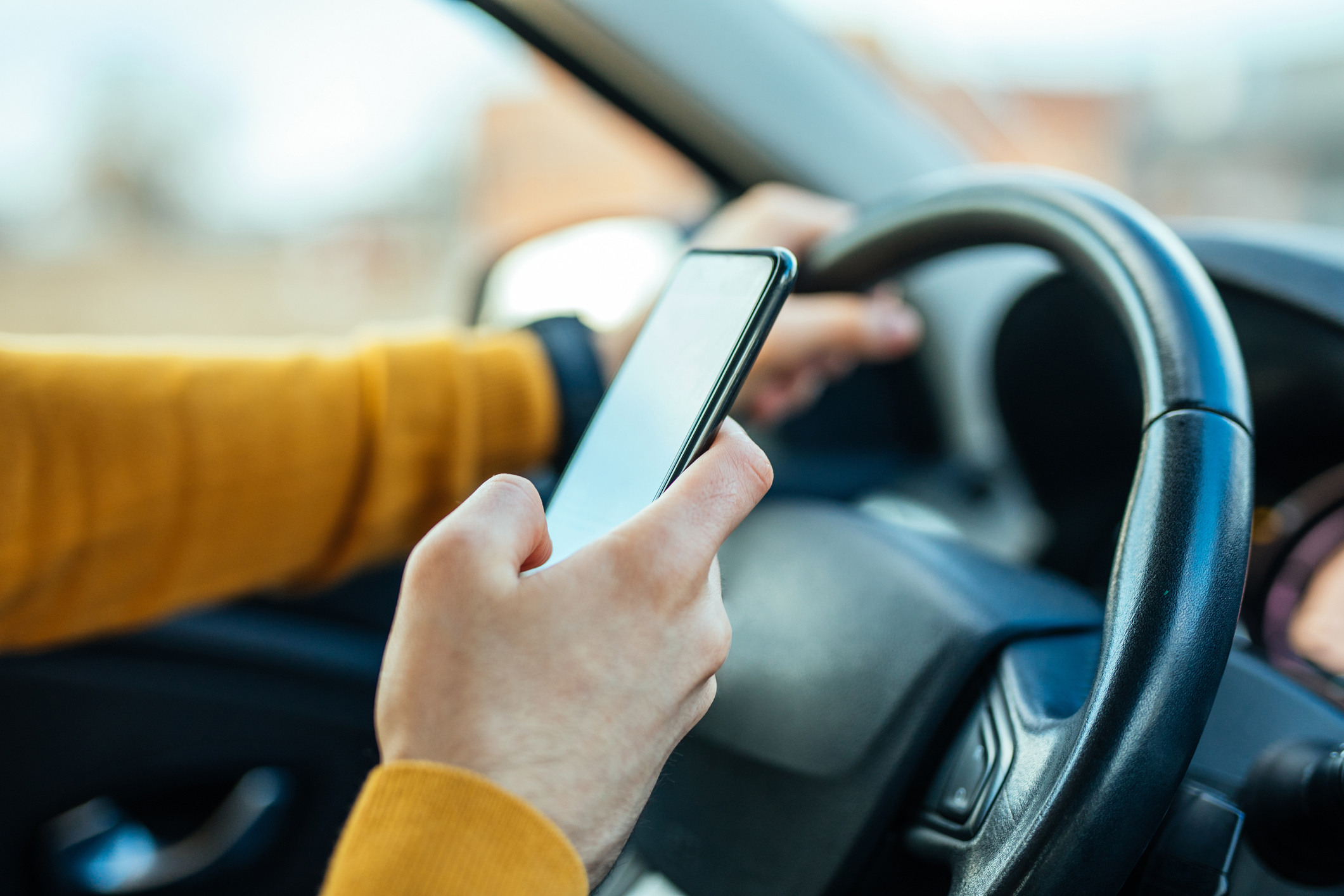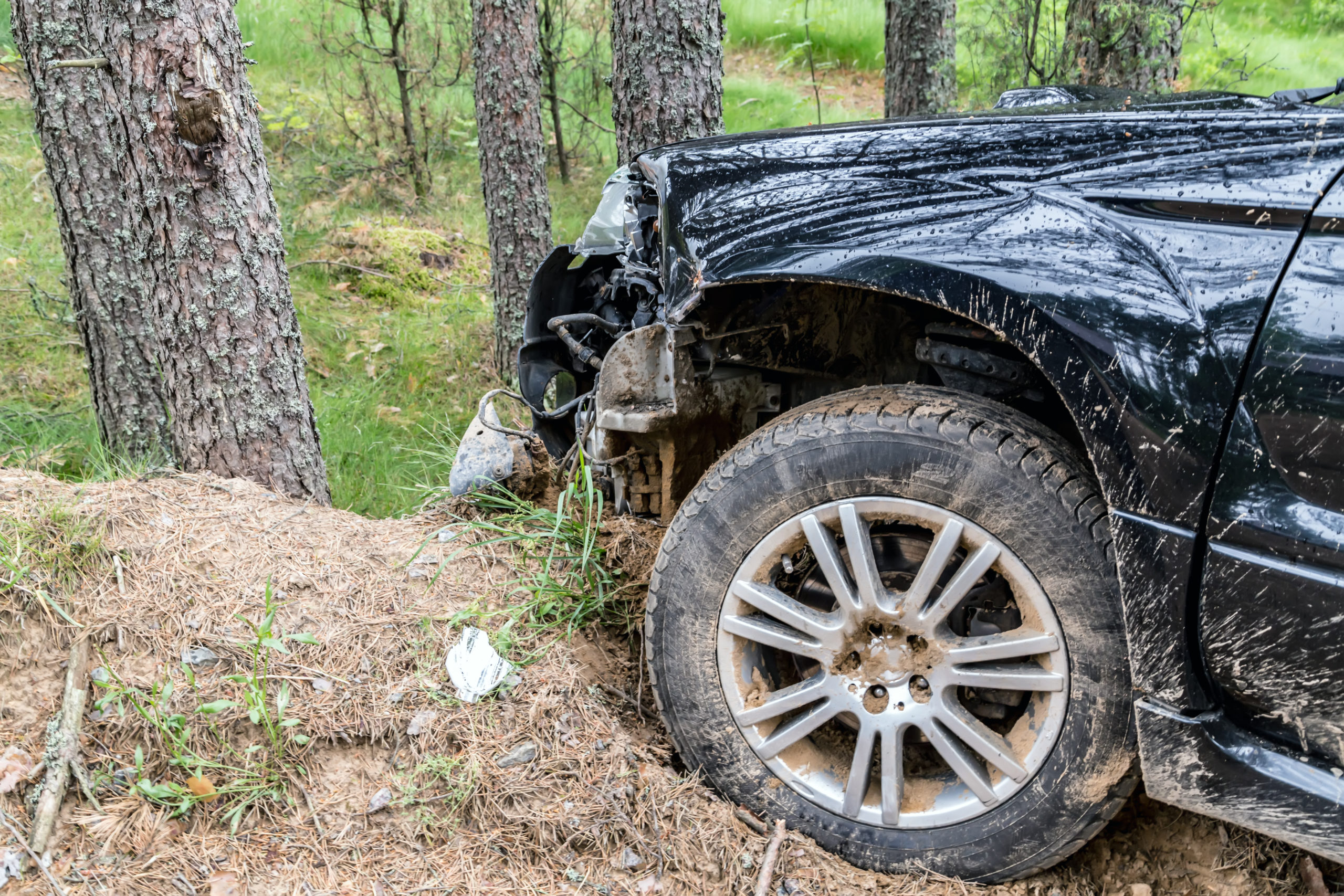Whether it’s texting, calling, drinking coffee, applying make-up, or checking on kids in the backseat, distracted driving is now one of the leading causes of car accidents nationwide and in New Jersey. In 2018, distracted driving caused 2,800 deaths and 400,000 injuries across the country. Nearly 150 of those fatal crashes occurred in New Jersey alone.
An accident with a distracted driver can have serious consequences. In addition to serious bodily injuries or death, car accidents can cause property damage beyond just the vehicles involved. It’s common to end up with high medical bills and lingering pain and suffering or disability after an accident caused by a driver who was not paying attention. Car insurance often won’t cover the entire cost, which means filing a lawsuit against the distracted driver is often necessary to receive full compensation.
What Is Distracted Driving?
Distracted driving is driving while doing something that takes one’s attention away from the road. This can take many forms, like using a cell phone, applying makeup, drinking a beverage, or eating something just picked up a drive-through window.
New Jersey has some of the nation’s strictest laws against distracted driving. Under New Jersey Statute 39:4-97.3, anyone who holds a cell phone while driving can be fined up to $400 for a first offense, and can lose their license after three offenses. Police can pull over any driver they see breaking this law, even if the driver isn’t breaking any other traffic laws.
However, while strict laws against distracted driving might reduce the number of accidents, they don’t help compensate victims when distracted drivers cause accidents. Although a distracted driver who causes an accident may have to pay a fine, that fine goes to the state, not the victim. To receive compensation, the victim will need to file an insurance claim and possibly sue the distracted driver if the injuries or property damage are serious enough.
Can I Sue a Distracted Driver?
In New Jersey, car insurance policies carry Personal Injury Protection (PIP) benefits that compensate accident victims regardless of fault. If a person does not suffer a permanent injury, they generally must take the benefits instead of filing a lawsuit. However, anyone who suffers a permanent injury, such as a disfiguring facial scar, loss of a limb, lasting pain, disability, or death may both take the benefits and file a lawsuit against the driver at fault.
Filing a lawsuit against the distracted driver is often the only way to receive full compensation for an accident.
PIP benefits cover only medical bills and lost time at work, not pain and suffering, loss of enjoyment of life, disability, or other types of damage. Additionally, PIP benefits only pay up to a certain policy limit, and the medical bills for an accident can exceed that limit.
In any car accident lawsuit, the injured person must prove that the other driver is at fault. While distracted driving is illegal in New Jersey, someone found to have driven while distracted is not automatically considered at fault for an accident. However, a driver’s use of a cell phone or other distraction is powerful evidence of fault.
Ultimately, if a case goes to trial, a jury will look at the conduct of both drivers and any surrounding conditions to determine who is at fault. Even if a driver is distracted, they may not be found fully at fault, especially if the other driver was distracted too. For example, in Scianni v. Suriano, the defendant in a car accident case was found not liable because phone records showed the plaintiff was on the phone at the time of the accident.
Juries express fault in percentages. The victim’s award at trial is reduced by their fault percentage. For example, if a person suffers $1,000,000 in damages and is 10% at fault, they only receive $900,000. In New Jersey, a victim cannot receive any compensation if they are more than 50% at fault.
There is no exact scientific way to determine a person’s percentage of fault, so the percentage of a person’s fault (and therefore their compensation) often hinges on how effective their lawyer is. An experienced personal injury attorney will know how to argue a case to get as low a percentage of fault assigned to their client as possible.
Most cases do not go to trial, but instead end in a settlement. However, how much of a settlement an insurance company is willing to pay depends on how strong the victim’s case would be if the case were to go to trial. That is why it’s important to find a lawyer who can gather all the evidence and build the strongest case possible.

Proving a Driver Was Distracted
There are several ways a lawyer might prove that a driver was distracted at the time of an accident. Below are several of the most common:
- Eyewitnesses. In some cases, a passenger in the driver’s car, another driver (including the victim), or a nearby pedestrian might have seen the driver looking at a phone or engaging in some other type of distraction.
- Statements made at the scene. Car accidents are shocking events. A distracted driver might admit to being distracted. These statements can be used against them in court.
- Police reports. The police investigate serious accidents and document them. They often find evidence of distracted driving and note it in official reports.
- Cell phone records. Once a lawsuit has been filed, it’s possible to request records from the driver’s cell phone carrier to see if they were calling or texting at the time of the accident.
- Physical evidence at the crash scene. Partially eaten fast food, makeup tossed inside the car or out onto the road, and other physical items at the scene of the crash might be helpful in proving the driver was distracted.
- Accident reconstruction experts. In many car crash cases, lawyers will hire forensic experts to reconstruct the accident for the jury. The experts might be able to help prove the driver was distracted.
- Video surveillance cameras. It’s possible that the accident, and the events leading up to it, were captured by nearby store surveillance cameras. The footage may show the driver was not paying attention to the road just before the crash.
While these are the most common methods to prove a driver was distracted, they aren’t the only ones. Every case is unique, and there may be other ways to prove a driver was distracted in a specific incident.
Is it Possible to Sue Someone Who Distracted a Driver?
In some cases, yes. A passenger who distracted a driver may be partially at fault for the accident. In Champion v. Dunfee, the Appellate Division stated that a passenger who actively encourages a driver to act negligently may be held liable for an accident. Although the passenger in that case ultimately was not found to have actively encouraged the negligence, the court left open the possibility that a passenger who actively distracts a driver might be liable.
New Jersey has also been one of the first states to allow lawsuits against someone who texted a driver. In Kubert v. Best, the victim of an accident sued someone who was texting the driver who injured them. The court found that the person who sent the texts was not liable in this case because she did not know that the recipient of the messages was driving, but said that she would have been liable if she had reason to believe he was driving and would read the texts.
A person does not have to choose between suing the sender and receiver of the text. It’s possible to sue both. For example, in the Kubert case, the plaintiff sued both the sender and receiver of the text. While the sender was not found liable at all, the plaintiff still received a $500,000 settlement from the driver who received the text and caused the accident.

Case Study: $21 Million
What makes this case unique: Defense witness testified in favor of plaintiff; judge was a former Attorney General who had lost a substantial case to Mr. Rosenblum years earlier; Appellate Court actually increased the award amount.
Frequently Asked Questions
Oftentimes, there are ways to show the accident was caused by a distracted driver. Eyewitnesses, official police reports, cell phone records, video surveillance cameras, and/or items at the scene of the crash can provide evidence that can be used in your case. Your attorney may also hire forensic experts to reconstruct the accident for the jury.
Yes. In addition to suing for bodily injuries, if your vehicle or some other form of property was damaged, that can be factored into your lawsuit. Property damage is often less complicated than the personal injury part of a lawsuit because it’s easier to figure out the exact amount of damage. Also, car insurance personal injury benefits don’t limit the right to sue for property damage.
In cases where the distracted driver’s behavior is considered particularly irresponsible, you may be able to get punitive damages. Punitive damages are meant to both punish the distracted driver for extreme negligence and to warn other drivers that they should not engage in the same dangerous activity.
The Centers for Disease Control and Prevention (CDC) divides distractions into three types:
Visual: anything that takes one’s eyes off the road, like texting or eating
Manual: anything that takes one’s hands of the wheel, like applying makeup or fixing one’s hair
Cognitive: anything that takes one’s mind off of driving, like a conversation
There’s some overlap between these categories. For example, calls and text messages fit into all three categories.
Who Should I Contact if I’ve Been Injured by a Distracted Driver?
If you or a loved one has been injured by a distracted driver, contact Rosenblum Law for a free consultation today. Our experienced personal injury lawyers can guide you through the process and get you the best settlement or verdict possible. Call 888-815-3649 or email us today.










 888-815-3649
888-815-3649
